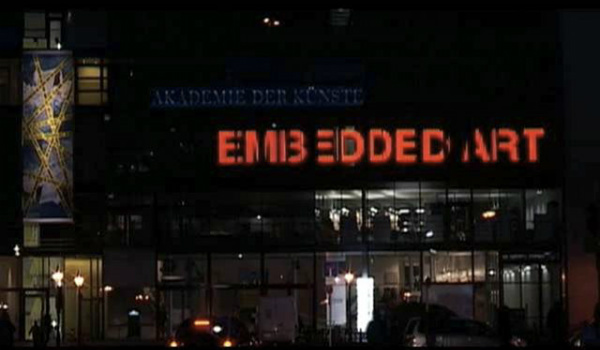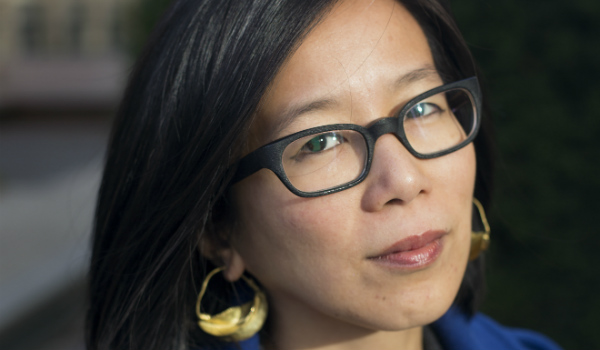Image (c) Louis Schreyer
Cecilia Wee is a curator, educator and researcher who grew up in Thatcher’s London. She is passionate about investigating the role of art and design in creating a more equitable society. Until last month, she was Tutor in the School of Communication, Royal College of Art and is now taking up the post of Head of Artists’ Advisory at Artsadmin, leading organisation for experimental performance and interdisciplinary art.
I am trying to be more aware of time. I am trying to practice being present. Meanwhile, I am painfully aware of my mounting to do list, competition for what I direct my attention to and why. Time never seems to be on my side, or maybe not even on your side, says I. Sarah Sharma, author of ‘In the Meantime: Temporality and Cultural Politics’ says that contemporary labour is underpinned by three “normal[ised] and mutually reinforcing conceptions of time…(1) time management is the individual’s responsibility; (2) one must work harder to stay in time; and (3) being tired is a slow person’s excuse for being unproductive”. This complex relationship between time, money and work continues to frame the contemporary experience of the neoliberal, self-precariat. I wanted to use this short piece to give time to some principles, ideas and initiatives that I am hopeful about as means of resistance and making social change.
Marking time: This year marks a number of significant anniversaries for those involved in alternative culture and social justice: a hundred years since women were given the right to vote, fifty years since major counter-cultural protests across the world, forty years since Time Out magazine first launched, twenty years since the Good Friday Agreement and ten years since the collapse of the Lehman Brothers sent shockwaves across financial markets, precipitating the Global Financial Crisis and a period of austerity coupled with technological change that has irrevocably transformed how we live and think about our lives. I was in the Akademie der Künste, Pariser Platz, Berlin when I heard about the collapse of the Lehman Brothers on 15 September 2008. I was working with German artist collective BBM to collectively curate “Embedded Art: Art in the Name of Security”, a multidisciplinary exhibition of 40 commissioned works interrogating the societal shifts caused by a universal desire for security and the War on Terror. I remember being concerned about how this crash would materially effect my labour (and fee) for the project. As the Global Financial Crisis and its long term impacts have unfolded, sharing and interrogating experiences of time and economics on personal and global scales has been important to many – in other words, we all have a right to talk about and make new models for how we spend our time.
New forms of growth: Tim Jackson’s hugely influential book ‘Prosperity Without Growth’ (2009) gathered social, political and environmental evidence that we need to re-assess what we mean by growth, questioning trickle down economics and offering an alternative, more inclusive way of understanding value. Arguably, the no growth condition is the one we are currently living in, but it seems to be the evil flip side of what Tim Jackson imagined – a broken economy with higher levels of inequality than before the Global Financial Crisis, with the number of spaces for resistance and support for those facing difficulties rapidly decreasing. The more time that passes after the Global Financial Crisis, the less likely it seems that large-scale economic change will take place. In this context, the FairCoop global movement to build a self-managed commons for transition to a more equitable society is a notable development in reclaiming definitions of growth.
Commitment: I would like to remember legendary US peace activist Gene Sharp who died last week, shortly after his 90th birthday. His 198 Methods of Nonviolent Action, which is an invaluable resource for people working against injustice and oppression, systematically examined and compiled tactics used by activists in political struggles across the world. Gene Sharp’s focus on non-violence is a provocative counterpoint at a time when we are bombarded by the rhetoric of world leaders who view themselves as “strong” for holding views that perpetuate attacks against the vulnerable. At the heart of his approach is the recognition that the consent and cooperation of every one of us is at the centre of a functioning society.

Learning: Over the last six years of teaching at Royal College of Art, in spite of the numerous challenges facing higher education, I have been consistently impressed by my students’ ambition, skills and determination to make ground-breaking work. Having the opportunity to listen to their experiences and develop ideas with them often humbled me and has transformed the way I view education. This notion of co-learning fundamentally challenges the foregrounding of skills, training and employability, in favour of a model of peers working together to co-create knowledge. I hope to continue promoting inclusive ways of working and ways of learning in my work at Artsadmin, learning from the diversity of abilities, geographical locations, career stages, time commitments, life experiences, and collective/individual practices of those working to create radical art.
Decolonising: I was honoured to recently chair an intense and significant discussion ‘Decolonising the Institution’, one of the first College-wide events addressing race, ethnicity and inclusivity at the Royal College of Art. In preparation for the event I had to reflect on how my experience as a British born Singaporean/Peranakan relates to the subject. I was lucky enough to have grown up at a time when it was possible to get a free music education through the local council and I went to university (the first person in my family to do so), also on a full grant. However, people of colour continue to face considerable challenges in being listened to and enabled, especially within the ideological foci of business and power in the neo-liberal art school. Much change needs to be made (by all of us) so that Lubaina Himid a black woman winning the Turner Prize or a Diaspora Pavilion at the Venice Biennale are no longer celebrated as exceptional ‘firsts’ but are thoroughly embedded in an inclusive culture.
Energy: The Radical Renewable Art and Activism Fund is a project that I’m working on, spearheaded by the activist-artist-researcher Ellie Harrison and a group of brilliant people. The idea is this: we’re going to make renewable energy that will fund art and activism projects. We decided to create this in response to cuts in arts funding, to create an independent, autonomous source of funding for art and activism and small piece of infrastructure that will positively address carbon emissions, an alternative to fossil fuel sponsorship of the arts. We hope that someday soon this model will be the norm.
Being present: I am trying to do this as much as I can, every day. I am celebrating small pleasures, trying to attend to issues of equality and justice wherever I can, and trying not to be a slave to the clock.
